Consider the following case:
function func1() {
return {
hello: "world"
};
}
function func2() {
return
{
hello: "world"
};
}
console.log(func1());
console.log(func2());
The first function func1() will return the object { hello: "world" } but the second function func2() will return undefined. Why is that? My guess is the returned value needs to be on the same line as the return keyword. What "rule" am I unaware of here?
